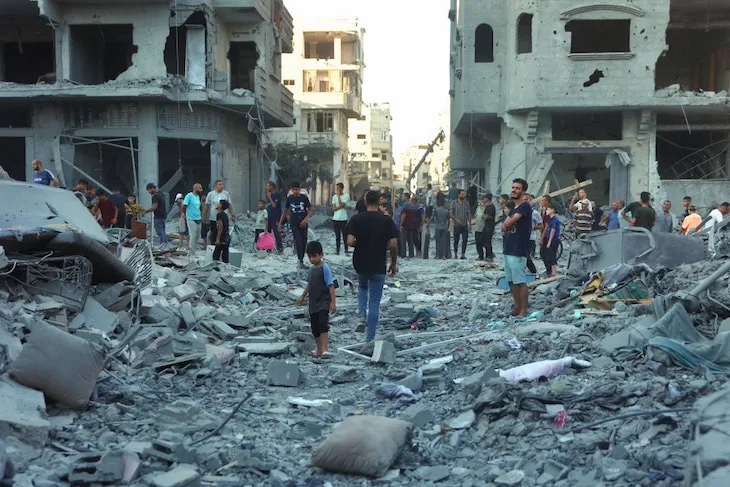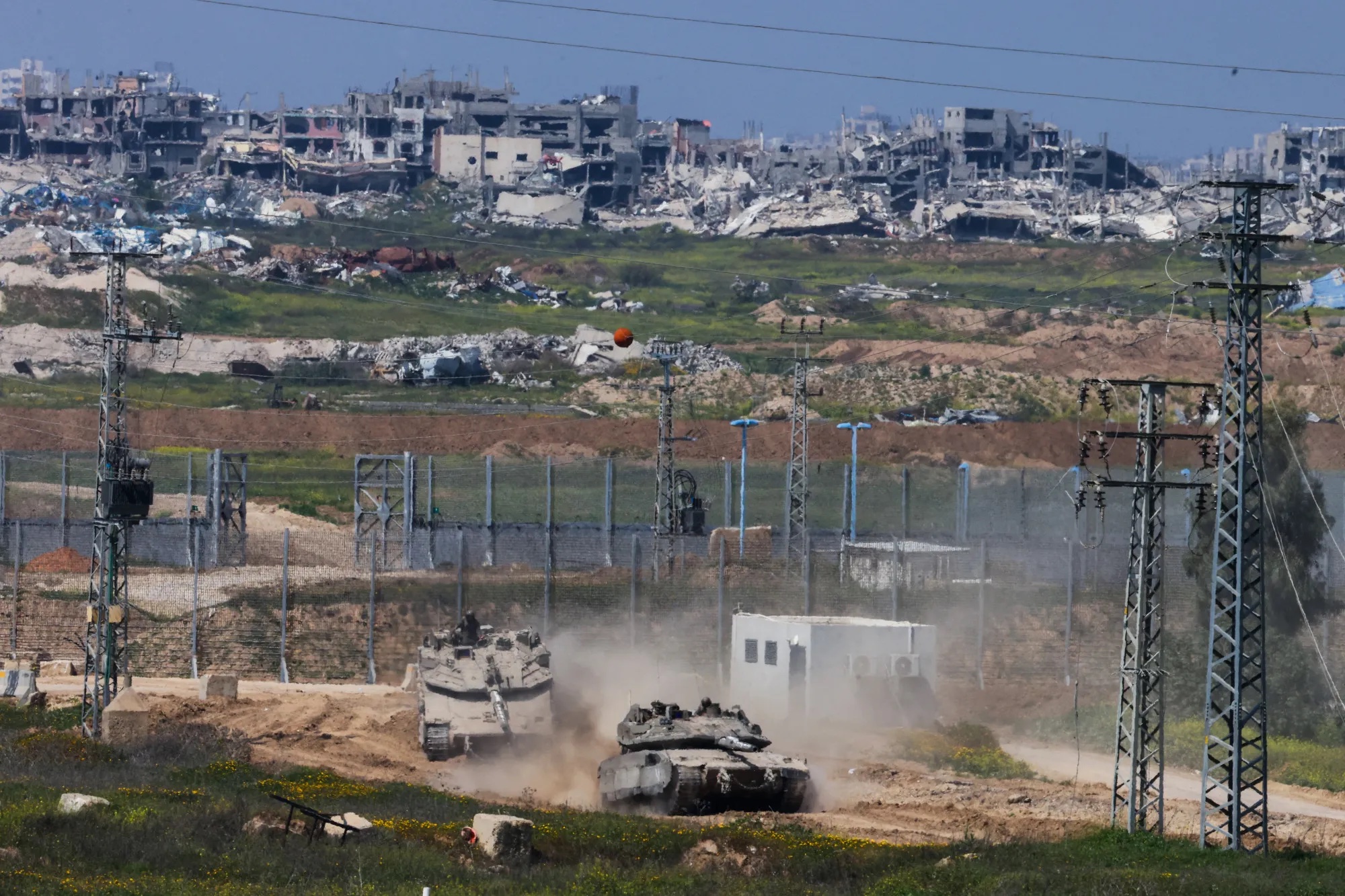As the war in Gaza drags on into its eleventh month, and the conflict risks expanding into a regional war involving both Iran and its Lebanese proxies, it is surely time to question what would be a successful outcome for Israel.
Militarily, the IDF has inflicted enormous damage on Hamas. Yet around 115 hostages continue to languish in Gaza and, in public relations terms, Israel is clearly losing the propaganda war.
The Jewish state is increasingly accused of war crimes and its allies are more likely to call for a ceasefire than issue a stalwart defense of its actions. Moreover, court cases in the international arena continue to ratchet pressure on Israel. The International Criminal Court is still considering whether to issue arrest warrants against Benjamin Netanyahu and defense minister Yoav Gallant for war crimes; while a case continues at the International Court of Justice alleging genocide.
In a further blow, in July the ICJ issued an advisory opinion on “the legal consequences arising from the policies and practices of Israel in the Occupied Palestinian Territory,” which stated that Israel’s occupation is illegal. This opinion is not legally binding and many of these international cases seem unduly political, are unlikely to be enforceable, and may well prove counterproductive. Nonetheless, they all add to a sense of reputational damage since Israel wishes to be identified as a moral state which observes the rule of law.
One of Israel’s problems is that it has simply lost control of the narrative. The events following the strike on the al-Tabaeen school site on August 10 highlight the problem. It remains far from clear what happened. Yet the account from the Hamas run Gaza Health Ministry that Israel had massacred more than eighty people immediately took hold, with Israel facing condemnation from many European states. The same day Israel published a list of nineteen terrorists killed in the strike, alongside aerial photographs of the strike itself. This received little media coverage and when it was mentioned was presented as Israeli “claims” (whereas the casualty figures, which are likely to have been inflated by Hamas, were typically presented by the media as fact).
This week, David Mencer, a spokesperson for Israel argued that BBC journalist Mishal Husain warranted “a pro-Palestinian reporter of the year award” after the Today program gave a Palestinian time to repeat the al-Tabeen massacre accusations on air, while posing him tough questions about whether Palestinian prisoners had been tortured in prison.
While Mencer may have felt exasperated, his approach was fairly ineffectual. If you want to win a journalist (and the public) over, it is better to take them through evidenced facts, rather than being abusive on air.
The Israeli government often does itself no favors. Its talk of eliminating or destroying Hamas is increasingly counterproductive. No one really knows that this means and, after eleven months of fighting, it does not seem like an achievable objective — rather an excuse for a permanent state of war. If Israel does not reframe the narrative, it will eventually face claims that it lost its conflict with Hamas.
Earlier in July, Netanyahu might have calculated that Trump’s anticipated victory over Joe Biden would leave him in a far stronger position to continue the war with American support. The recent Democratic resurgence under Kamala Harris makes that bet a much riskier proposition. Support from Britain is also not guaranteed under Sir Keir Starmer. There are already reports that David Lammy may cease the export of offensive arms to Israel.
The irony is that with the assassination of Ismail Haniyeh in July, Israel has now killed four of the five top Hamas leaders it holds responsible for the October 7 massacre and subsequent Gaza war. Saleh al-Arouri, the deputy chairman of the Hamas Political Bureau was killed in January; Marwan Issa, the deputy commander of the Ezzedeen al-Qassam Brigades was killed in March; and Mohammed Deif, the head of the Ezzedeen al-Qassam Brigades was said to have been killed in July (although this is denied by Hamas). That may leave only Yahya Sinwar, recently promoted to chairman of the Hamas Political Bureau, skulking in the tunnels below Gaza.
The audacious killing of Haniyeh should have been used as a means for Israel to declare victory in the war (much as President Obama sought to reorientate the “war on terror” following the assassination of Osama bin Laden). Israel has demonstrated its ability to reach its enemies, wherever they may hide. Now, its primary objectives should be seeking a way to successfully conclude the conflict and recover the hostages.
In spite of its resolute propaganda, Hamas appears increasingly desperate, reportedly killing one hostage and wounding two others in separate incidents on Monday. The situation for the hostages seems ever more grave.
The Israeli government’s alternative, an escalation involving a war with Hezbollah and Iran, may help Netanyahu’s short term political prospects, but would do little good for the citizens of Israel who would suffer significantly in such a conflict. De-escalation is in everyone’s interests.
In terms of the Gaza war, arguably, Israel should set out some much clearer objectives to enable it to end the conflict. These would obviously be subject to negotiation, but a starting point might be a negotiated surrender by Hamas (rather than continued calls to destroy the organization by Israel); the return of the hostages and a new Palestinian administration (excluding Hamas) in Gaza.
Israel should repeat these conditions ad nauseum until everyone is clear that it is willing to end the war and is not asking too much in return. Of course, Hamas is unlikely to agree to these terms. But such reasonable demands would put much greater pressure on the Palestinians and would make it rather harder for world leaders to criticize Israel.
The alternative is that Netanyahu doubles down on the conflict and continues to seek the total destruction of Hamas, whatever the cost. It is hard to see how such a course of action would end well for Israel, or for the remaining hostages.
This article was originally published on The Spectator’s UK website.


























Leave a Reply